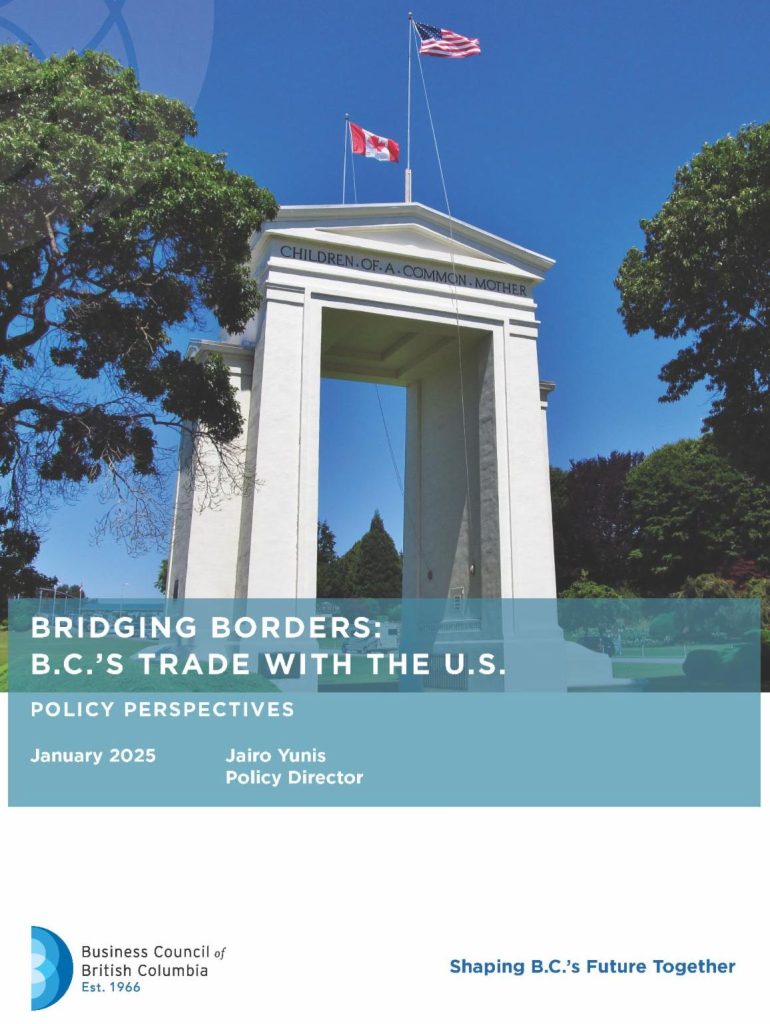January 17, 2025 (Vancouver, B.C.) – As British Columbia prepares to navigate potential challenges posed by changes in U.S. trade policy, the Business Council of British Columbia (BCBC) has released a new report highlighting the province’s vital economic ties with the United States.
With the imminent inauguration of President Donald Trump and his stated intention to impose sweeping tariffs, this report underscores the critical importance of the Canada-U.S. trade relationship to B.C.’s economy.
Key findings of the report, titled Bridging Borders: B.C.’s Trade with the U.S., reveal:
- B.C. exported $30.4 billion in goods to the U.S. in 2023, representing 54 per cent of its total merchandise exports and seven per cent of GDP.
- Natural resources, including energy, forestry, metals, and agriculture and fishing products make up 69 per cent of B.C.’s exports to the U.S., highlighting their role as a cornerstone of the provincial economy.
- The U.S. Pacific Northwest is a key destination for B.C. exports, with strong export ties to Washington (32% of B.C.’s goods exports to the U.S.), California (11%), and Oregon (4%).
- Over 136,000 B.C. jobs are directly tied to U.S. demand for goods, emphasizing the profound impact of cross-border trade on livelihoods.
“The U.S. is B.C.’s largest trading partner, and any disruption in our trading relationship would reverberate through our economy,” said report author and BCBC Director of Policy, Jairo Yunis. “Trade, however, is a two-way street. American consumers and businesses would also face impacts from new tariffs—a critical point we must continue to emphasize. Trade offers no win-lose scenarios, only opportunities for mutual benefit or shared loss.”
The report calls for a “Team Canada” approach to strengthen Canada’s trade relationship with the U.S., emphasizing the importance of Canadians presenting a united front. This approach would focus on reassuring Americans that Canada is a reliable neighbour while highlighting the potential economic risks and mutual losses that could arise if tariffs are introduced. It also emphasizes the need to address domestic challenges like regulatory inefficiencies and investment barriers to enhance B.C.’s competitiveness and mitigate the negative impact of potential trade disruptions.
Yunis concludes by stressing the importance of coordinated efforts among governments, businesses, and stakeholders to safeguard B.C.’s economic prosperity and maintain a strong, stable trading relationship with the United States.



